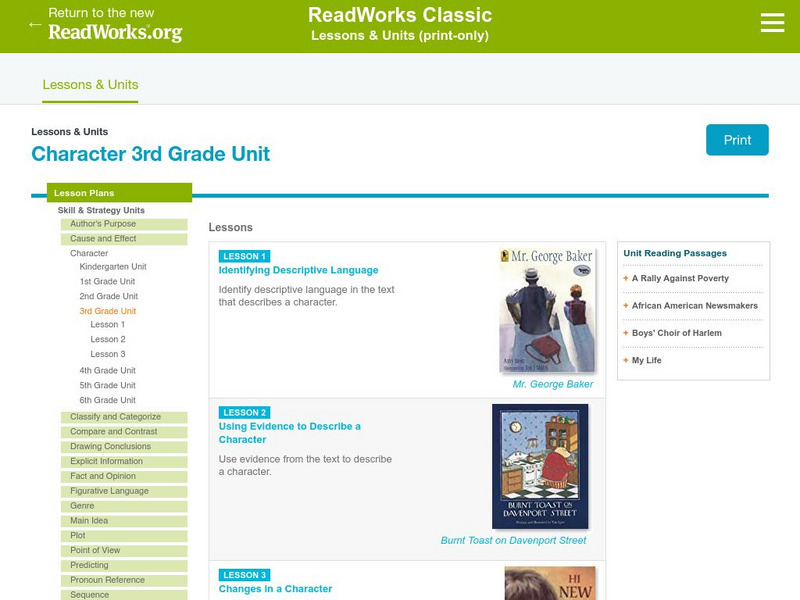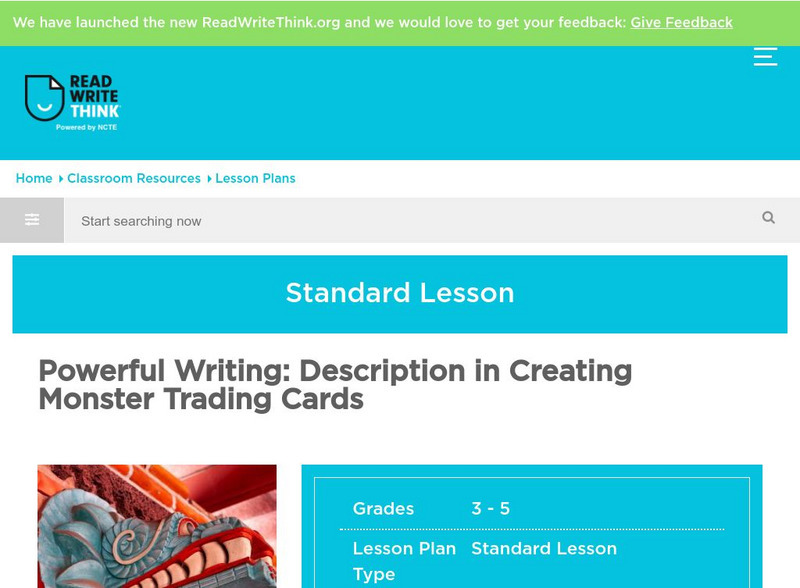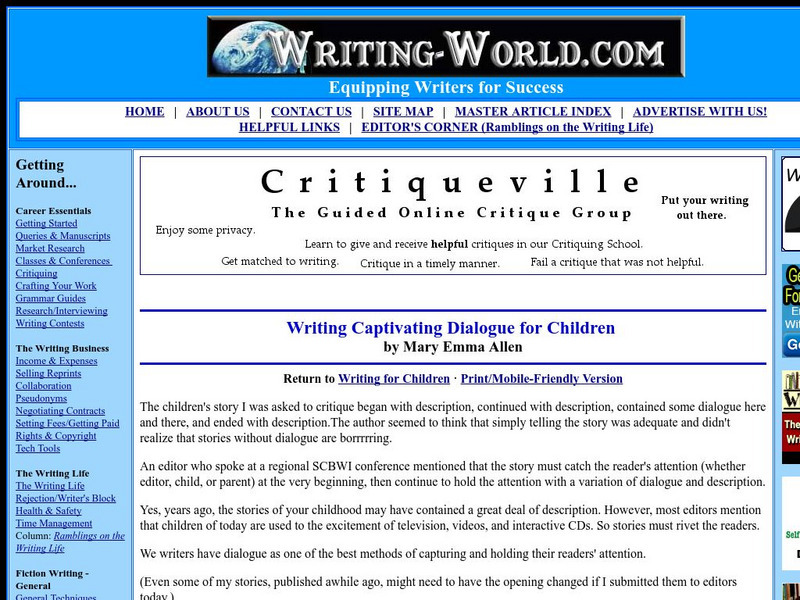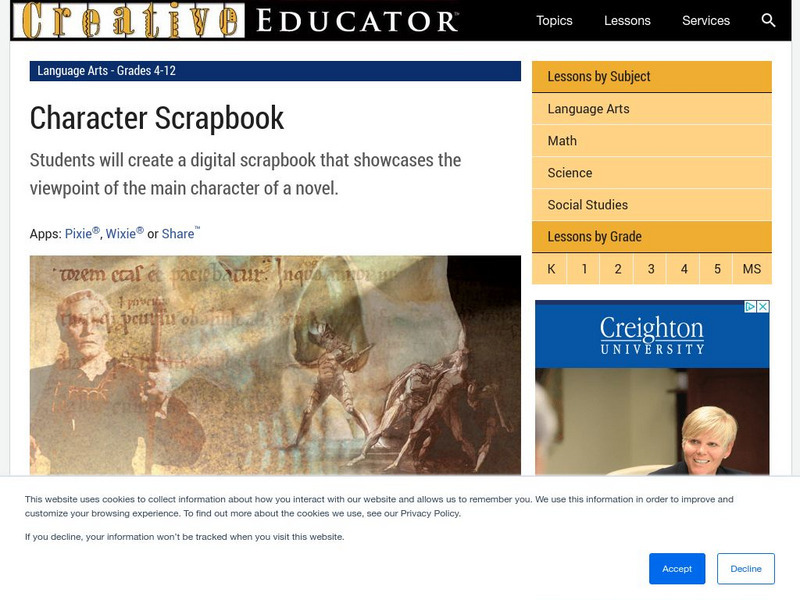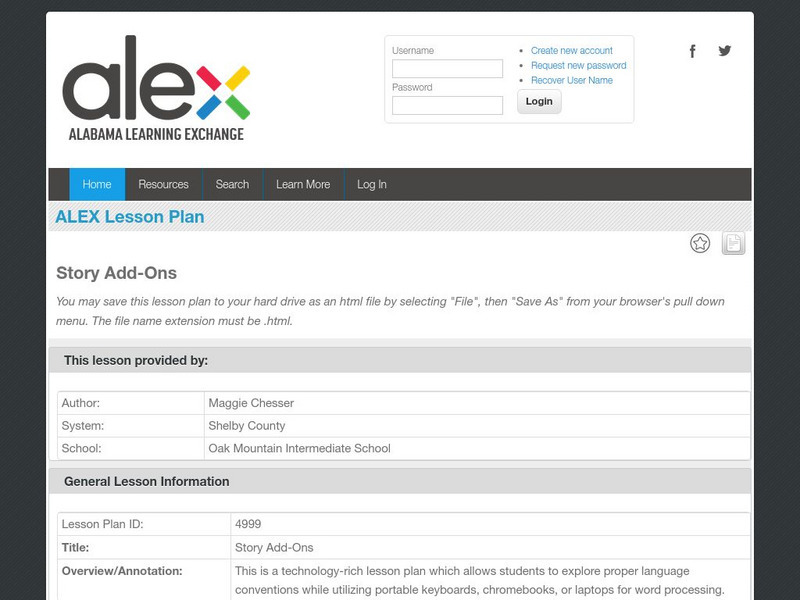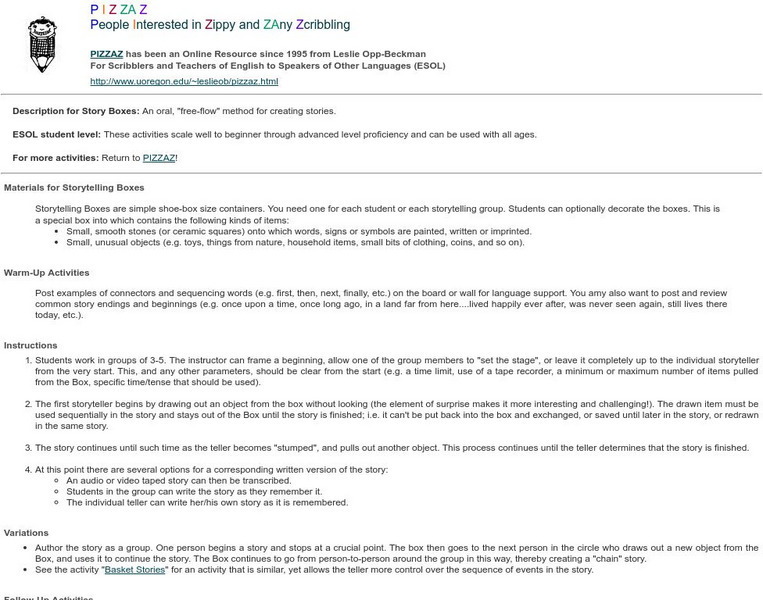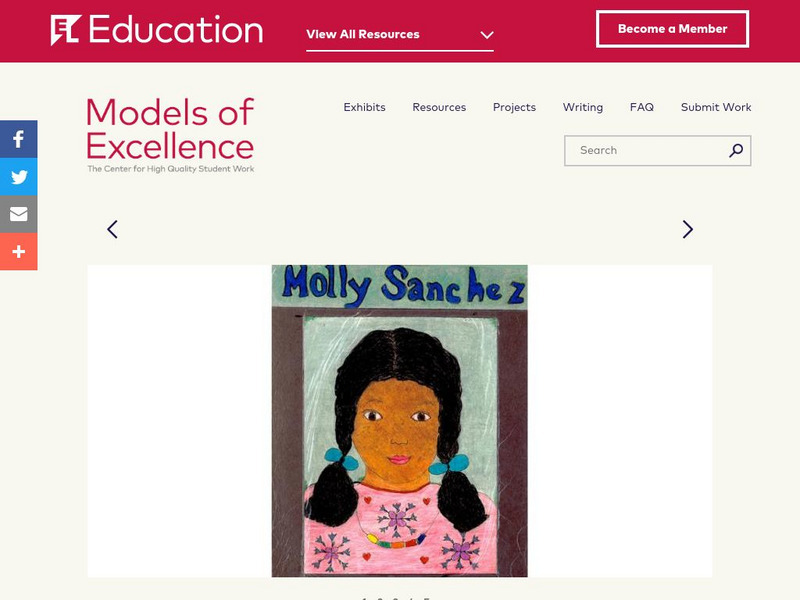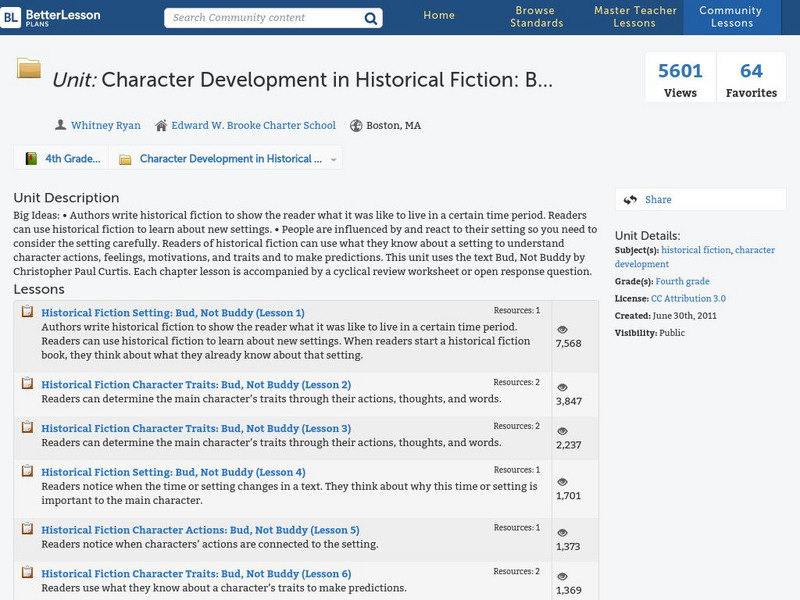Other
Write4 kids.com
This site provides a great deal of information on writing children's stories. Contains "Advice, instruction, insider tips, insight and inspiration."
TES Global
Blendspace: Dazzle Me With Dialogue
An eleven-part learning module with links to websites and texts to use while learning how to write and punctuate dialogue.
Other
Prezi: Finding the Central Message
The central message of a fictional story is often hidden between the lines. Learn how to find it in the characters and events in the story.
Read Works
Read Works: Character 3rd Grade Unit
[Free Registration/Login Required] In this three-lesson unit, young scholars learn how to identify language within a text that describes a character, use evidence from a text to describe a character, and to use details from a text to...
Annenberg Foundation
Annenberg Learner: Characters
Learn about the different types of characters in Cinderella, and determine which traits belong to the hero and villain. Click on the "Character" button.
Writing Fix
Writing Fix: Inventing a New Word
Inspired by the main character's actions in Frindle by Andrew Clements, students will be asked to reinvent an everyday object with a brand new word. They will need to imagine a character has reinvented their word, and then they will...
ReadWriteThink
Read Write Think: Powerful Writing Description in Creating Monster Trading Cards
Contains plans for two lessons that teach about descriptive writing by asking young scholars to create their own monster trading cards with vivid descriptions. In addition to objectives and standards, this instructional plan contains...
Other
****Story Mapping Strategy
This accessible explanation features a worksheet to help teach students to use story mapping to identify elements of a narrative.
Other
Writing world.com: Writing Dialogue for Children
A good site for teachers and writers looking to write for children, or teach children how to write dialogue. Includes tips and guidelines.
Better Lesson
Better Lesson: W.4.3b: Use Dialogue and Description to Develop Experiences/events
Links to 12 lessons and activities that build student skills in standard W.4.3b: Use dialogue and description to develop experiences and events to show the responses of characters to situations.
Other
Jefferson County Schools: Print a Prompt
Check out this resourceful site featuring "Print a prompt." Students can choose from several different titles and prompts and they are provided with a printed copy.
Alabama Learning Exchange
Alex: Writing to Determine, "What Is a Pulgar?"
This lesson plan is a writing follow-up to the guided reading lesson plan, "What is a Pulgar?" It utilizes a Makes Sense Strategies Think-sheet to guide the writing.
Alabama Learning Exchange
Alex: Hook Those Fish!
Students will read chapter and picture books to discover how the author "hooked" the reader. Students will then practice using the same strategies in their own writing.
Alabama Learning Exchange
Alex: Give That Character a Voice With Voki!
This instructional activity fuses fictional literature with technology through a project-based experience. Students will use the free online resource Voki to bring a fictional character to "life" and deepen their understanding of...
Alabama Learning Exchange
Alex: Powerful Book Reports
This lesson allows students to identify the critical components of a story while developing expertise in creating and presenting multimedia presentations.
Tech4Learning
Tech4 Learning: Creative Educator: Character Scrapbook
When we read novels, authors provide details about the main character through descriptive sentences, events that directly involve the character, and what other characters think and say about the main character. To show what you know...
Alabama Learning Exchange
Alex: Story Add Ons
This is a technology-rich lesson plan which allows students to explore proper language conventions while utilizing portable keyboards for word processing.
University of Oregon
Pizzaz, Creative Writing & Storytelling: Storytelling Boxes
This PIZZAZ lesson allows students the opportunity to engage in the small group task of audio-storytelling or video storytelling, after being given a shoebox filled with symbols and unique items.
Quia
Quia: Character Traits/descriptions
This reading resource provides vocabulary words with definitions. All words are related to character development and character traits. A link to associated review activities is included.
SMART Technologies
Smart: Developing Characters and Settings
In this activity provided by SMART, students will give reasons why they feel characters are important in a story. Students will explore how to create effective characters and settings in their own writing by using a character web.
EL Education
El Education: Molly Sanchez
Students learn about Deaf Culture through presentations, cultural experts, fieldwork, and reading fiction and non-fiction books. Then students use the information they have learned to create a realistic character and write a character...
Better Lesson
Better Lesson: Unit: Character Development in Historical Fiction: Bud, Not Buddy
Big Ideas: Authors write historical fiction to show the reader what it was like to live in a certain time period. Readers can use historical fiction to learn about new settings. People are influenced by and react to their setting so you...
ClassFlow
Class Flow: Story Elements
[Free Registration/Login Required] This flipchart reviews the five main elements of a fiction story using the example of Goldilocks and the Three Bears.
Annenberg Foundation
Annenberg Learner: Interactives: Elements of a Story: Characters
The interactive story lesson engages students in the study of "characters" and terms associated with them. Using the story of Cinderella as an anchor story, students will identify the following: hero, villain, protagonist, antagonist,...





